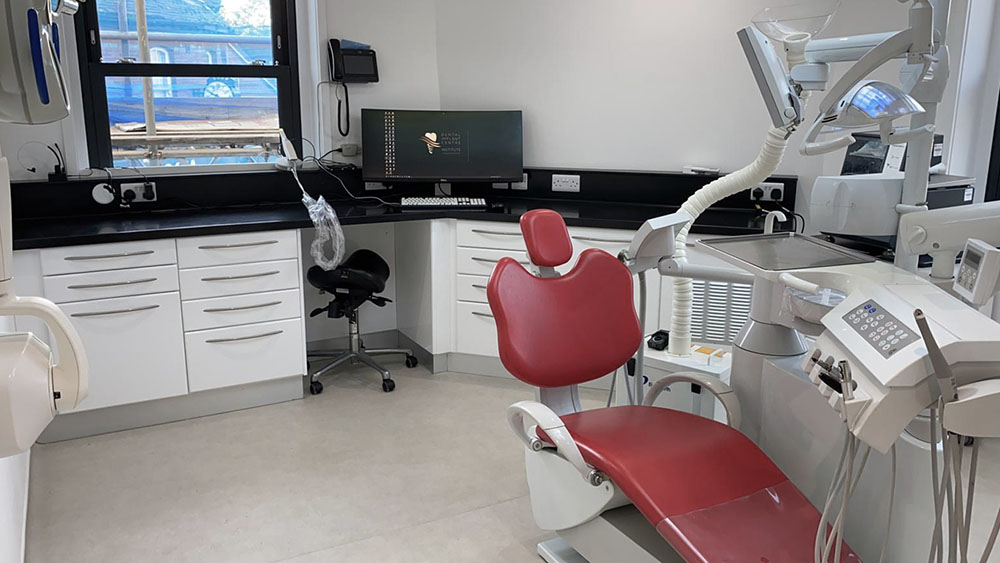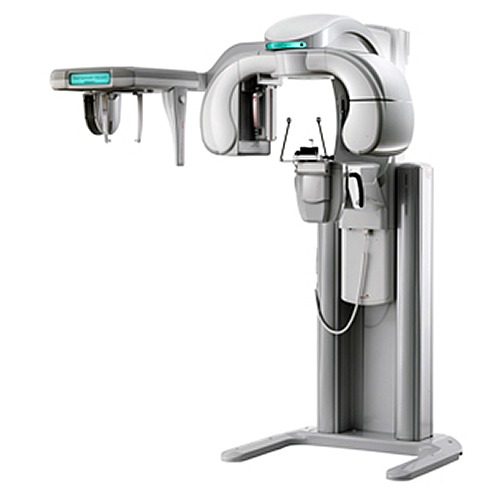
The growing demand for implants is a mixed blessing, believes Dr Avik Dandapat, one of the few dentists in the UK to hold the Diploma in Implantology from the Royal College of Surgeons.
“On one hand, good implants and reconstructive surgery are hugely beneficial to patients from both an oral health and a personal confidence standpoint, ” says Avik. “On the other hand, there are real dangers lying in wait for the dentist who has had insufficient training and/or does not invest in first-class diagnostic equipment.”
At 31, Avik acknowledges that some of his older colleagues may find it difficult to take advice from someone relatively young, but his commitment to and enthusiasm for advancing dental implantology vindicate his views. Avik, whose father is a GP in London, qualified at Birmingham. He spent a sabbatical period in India dealing with head and neck cancer as an SHO in oral and maxillofacial surgery, but by his own admission, was not keen on hospital surgery.
His interest in oral/maxillofacial surgery developed into something of a passion for “getting to grips” with implantology and in 2001 he was accepted for admission on the third cohort of the Diploma in Implantology at the FGDP(UK), part of the Royal College of Surgeons of England. The course was intensive and demanding, evidenced by the fact that the failure rate was high.
In order to gain the diploma, Avik had to produce 10 clinical cases, from a single tooth through to full implant/bone reconstructive cases – each supported by a 2000-word case study and clinical photos of each phase, 20 clinical essays evidenced and cited from journals throughout two years, over 20 surgical tasks assessed to adequate standards at the Royal college, an intensive Viva voice examination assessed by two eminent specialists in the field and a practice accreditation that looked at everything in his practice from cross infection, record keeping and management of his staff and their training. Needless to say, the diploma took over Avik’s life for two years.
ARE IMPLANTOLOGY STANDARDS HIGH ENOUGH?
IS THERE SUFFICIENT REGULATION?
In Avik’s opinion, and based on his Royal College of Surgeons training, the answer to both these questions is an unequivocal “no”.
“It’s fairly easy to ‘do’ implants,” feels Avik, “but very difficult to do them to the standard the Royal College demands. And, bluntly, these should be the standards that, if not mandatory, are those to which the profession aspires.”
Obviously every dentist recognises he or she has a duty of care to the patient, but having rectified a number of errors (mainly the result of insufficient training of the implantologist), Avik believes stronger regulations are required: “Official guidelines are needed, not simply to ensure that training for implantologists is comprehensive, but that surgery setup is correct and that there is a real understanding of how to interpret a CT scan.”
Avik accepts that his views may upset those who would advocate a rapid provision of “supply” to meet the demand for implants, but in an increasingly litigious environment, there is a real need for caution.
At his lectures, Avik makes this point in no uncertain terms and emphasises the importance of investing in equipment that will ensure accurate diagnosis.
THE ROLE OF CT SCANNING IN DIAGNOSIS
The risk of getting facial cancer from a CT scan is minimal (one in 65,000), but the implantologist must recognise this risk and keep exposure to the patient to the minimum. The ALARA principle (as low as reasonably allowed) must be applied and risk versus benefit to the patient assessed. However, without CT scanning it is not possible to plan proposed treatment in many cases for patients and obtain proper informed consent to proceed.
At his lectures on the use of CT scanning in implant dentistry, Avik places great emphasis on the need to ensure that the patient ‘buys in’ to any proposed treatment.
“Patients are reassured by clear explanation. They do not respect or want the old-fashioned ‘we know what’s best for you’ approach,” Avik advises those who attend his lectures. “You need to be able to justify what you are doing, not just to yourself, but to your patient.”
Without CT scanning, it is possible to miss disease (eg sinus pathology prior to sinus grafting procedures) which could be detrimental to any planned implant treatment. But dentists should also take into account the more obvious condition of the patient’s gums.
Avik believes that every practice should be focused on prevention of gum disease and that if yours is an implantology practice and you are not ‘periodontally aware’, you’re on a slippery slope.
At his practice (The Dental Implant Centre in Twyford), Avik employs three hygienists and will not undertake implant treatment unless there is no sign of periodontitis or if mild periodontal disease is not strictly under control. He is particularly conscious of the potential dangers of peri-implantitis – a most aggressive form of the disease leading to implant failure.
THE FUTURE OF IMPLANTOLOGY IN THE UK
It concerns Avik that we are waiting for a mistake to happen before we improve implantology standards and protocol. There needs to be, in his opinion, a gold standard in relation to qualifications rather than a view that the implantology road is paved in gold. To this end, Avik has not only invested heavily in his own training but also in his equipment.
The CT scanner Avik chose was the Vatech & E-WOO Picasso Trio, because, after checking out the various systems available, it was the only one that truly met his requirements, and he was impressed by their technical expertise and support.

“I would recommend anyone thinking of investing in a CT scanner to prepare a list of criteria,” Avik says. “If you do not know exactly what you’re looking for, you are a perfect target for sales people who offer you discounts simply to offload inferior or inadequate equipment.”
Here is the checklist he prepared for his practice, which he believes could prove useful to others:
- Suitability for type of practice – does it have the functions you need (particularly bear this in mind if you have a general practice running in conjunction with specialist treatments)?
- Must be able to pay for itself (eg CT scans and OPG/lat ceph x-rays).
- Don’t overlook the obvious – make sure there is suitable access and space. Check dimensions carefully.
- Must be easy to use and easy to understand.
- Assess and check software integration capability (eg with existing patient software).
- Ensure the software platform you choose has the manipulative power you require. If you’re doing implants, you don’t want to be paying a third party for 3D manipulation.
- Compare image clarity.
- Ensure you will get proper back-up and support (not just sales promises). Favour manufacturers that do not “buy in, bolt on and badge”. Companies that manufacture inhouse and develop their own software are generally better equipped to answer questions knowledgeably and swiftly.
- Price is important, but value for money is a broader consideration. If a product is heavily discounted, there is a reason.
- If you are planning longer-term (and it is generally sensible to do so), check out the upgrade capability of the equipment you are buying.
| DENTIST: | Dr.Avik Dandapat |
| EQUIPMENT: | Picasso-Trio |
| DENTAL PRACTICE: | Hospital Lane Dental and Implant Clinic |
| ADDRESS: | 3 Church Street, Twyford Reading, Berkshire RG10 9DN |
| TELEPHONE: | 0118 934 5927 |
| EMAIL: | team@dentalimplantcentre.com |
| WEBSITE: | dentalimplantcentre.com |